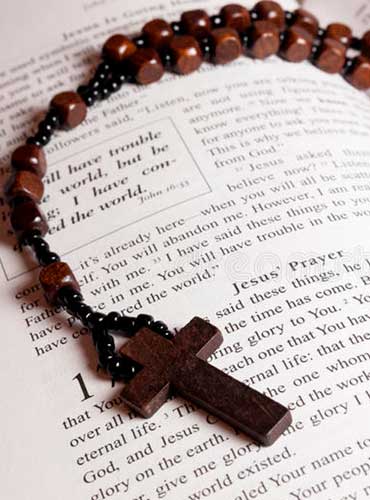Wednesday of the Third Week of Lent – Option 1 – Mt 5:17-19
Today’s first reading ends with the injunction that the Israelites must not “forget the things which [their] own eyes have seen, nor let them slip from [their] memory as long as [they] live.” The Bible contains very few references to memory as an abstract noun, but there are over 250 references to it as a verb, as an action. Oftentimes, it’s used in a request, asking either God or man to remember or not to remember.
Part of the importance of memory in the Bible is that memory isn’t merely passive; this is clearly seen with God. When God remembers, He does something or loves something. Scripture tells us that God “remembered” Rachel and Hannah, and they conceived children (Gn 10:22 and 1 Sm 1:19), and that God “remembered Noah and all the animals, wild and tame, that were with him in the ark. So God made a wind sweep over the earth, and the waters began to subside” (Gn 8:1). Even in the bleakest and most difficult moments, God remembers His people with an efficacious love: as Isaiah writes, “But Zion said, ‘The Lord has forsaken me; my Lord has forgotten me.’ Can a mother forget her infant, be without tenderness for the child of her womb? Even should she forget, I will never forget you. See, upon the palms of my hands I have written your name” (49:16). Yet, even though God remembers us, there’s something He forgets: “It is I, I, who wipe out, for my own sake, your offenses,” He tells Isaiah, “Your sins I remember no more.” As Saint Therese of Lisieux wrote: “‘If I had committed all possible crimes, I would still have the same confidence; I would feel that this multitude of offenses would be like a drop of water thrown into a flaming furnace.’ All possible crimes, a multitude of offenses, a drop of water in an immense furnace; that is the proportion.” She continues, “We can never have too much confidence in the good God who is so powerful and so merciful. We obtain from him as much as we hope for.”
We can ask ourselves about how well we remember God and His promises: is our memory of God’s past goodness and gifts efficacious? Does it bring us to do good deeds for others, and to love our God even more? Also, does it lead us to trust in Him? Are we worried about being forgotten by God, the God who “has our name written on the palm of His hand?” Do we try to see His providence throughout our entire lives, even in the most difficult moments?
Today, through the intercession of Mary, Refuge of Sinners and Our Lady of Sorrows, let’s ask for the grace to remember all the many blessings that God has given us, and, in turn, to live our lives in gratitude for His gifts, with great love for Him and for our neighbors.

The Priestly Beatitudes
I want to speak about one aspect of the mystery




